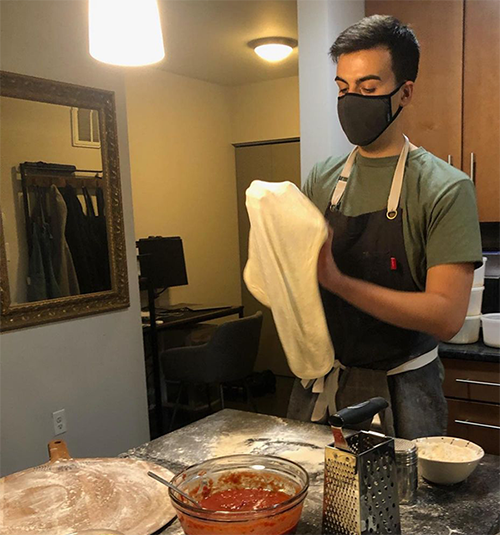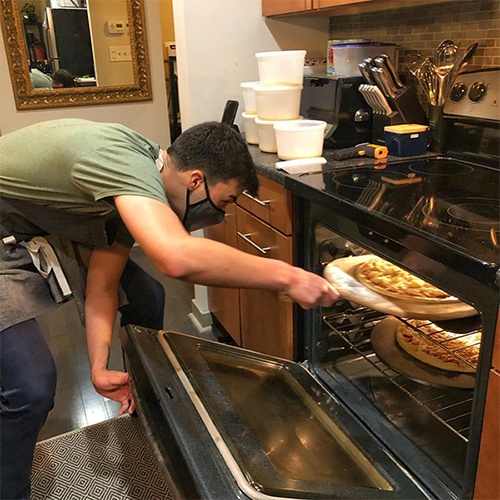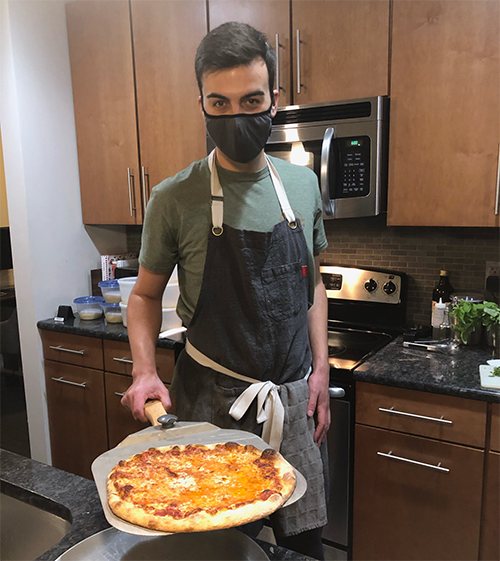$5 Million Gift for Endowed Professorship, Center for Integrative Global Oral Health
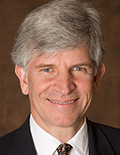
 Penn Dental Medicine has received a major gift that will provide the resources to help build the School’s leadership role in global oral (public) health. A $5 million gift from Penn Dental Medicine alumnus Garry Rayant, D’77, and his wife, Kathy Fields, will create a new endowed professorship at the School and establish the Center for Integrative Global Oral Health.
Penn Dental Medicine has received a major gift that will provide the resources to help build the School’s leadership role in global oral (public) health. A $5 million gift from Penn Dental Medicine alumnus Garry Rayant, D’77, and his wife, Kathy Fields, will create a new endowed professorship at the School and establish the Center for Integrative Global Oral Health.
“We are immensely grateful to Garry Rayant and Kathy Fields for this exceptional gift,” said Penn President Amy Gutmann. “Penn Dental Medicine has long been a pioneer in advancing innovations that transform dental education, research, and practice here in Philadelphia and throughout the world. This inspired commitment will continue that work by creating the Fields-Rayant Endowed Professorship and allowing us to take significant steps toward launching a new Center for Integrative Global Oral Health.”
“The tremendous vision and generosity of Dr. Rayant and Dr. Fields will have a far-reaching impact,” said Penn Dental Medicine’s Morton Amsterdam Dean, Mark S. Wolff. “Through this new Center, we will be able to elevate the discussion on the vital role of oral heath as part of overall health, to influence local, national, and global oral health policy, and to educate and train graduates to lead in developing public policy and addressing health inequities.”
The endowed Fields-Rayant Professorship will provide the first step in organizing the Center, enabling the recruitment of a leader to work with faculty, develop curricula, and leverage partnerships within the University and beyond in formulating an initial plan of investigation. Some of the primary goals of the Center include developing curricula for DMD and Master’s-level training in issues of oral disease prevention, social-behavioral and commercial determinants of (oral) health, and integration of oral health as part of overall health, including the establishment of a Penn Dental Medicine Master of Public Oral Health degree; conducting health policy and health systems research from both domestic and global perspectives; and advancing dialogue in these areas with educators, practitioners, and policy makers.
“Kathy and I believe that Penn Dental Medicine has the capacity to be a tremendous force in amplifying the current dialogue about global and integrative oral health,” said Dr. Rayant, who is a member of the Penn Dental Medicine Board of Advisors and will chair the initial advisory group for the center. “In keeping with Jerome M. Adams Surgeon General’s 2020 report and priorities, the Center will evaluate the interaction between oral health and general health throughout the lifespan and consider advances in science, health care integration, and social influences to articulate promising new directions for improving oral health and oral health equity across communities. The impact of one of the oldest and most highly regarded dental schools in the United States taking on this work will be profound; we are excited to be part of it and for the many affiliated faculties that Penn uniquely brings to bear.”
Dr. Rayant has had a long-time interest in oral epidemiology, dental public health, and health behavior. A specialist in periodontics and implant dentistry, an entrepreneur, and a philanthropist, he retired from clinical practice in December 2018. Dr. Rayant is editor-in-chief emeritus of Dear Doctor, a print and online national consumer health care magazine, for which he was co-founder and partner along with Penn alumnus Dr. Mario Vilardi, GD ’77. In addition to serving on the Board of Advisors to Penn Dental Medicine, Dr. Rayant also serves on the Board of Advisors of Penn’s Katz Center for Advanced Judaic Studies. Dr. Rayant is active in the area of education and educational reform: he is chair of the advisory committee at the Center for Children & Youth, JFCS Bay Area, and a member of several other advisory boards and councils (including that of Rodan & Fields, a premium skincare brand co-founded by his wife, Dr. Kathy Fields).
“By creating this center, we will be challenging the oral health community—and particularly oral health educators—to move well beyond producing technically adept professionals operating in isolation from other health providers,” said Dean Wolff. “Rather, we will become a visible force for integrative health, speaking truth to power about prevention and solidifying the role of the dentist as fundamental to ensuring the public’s overall good health.”
Penn Dental Medicine plans to launch a multi-year fundraising initiative to match the $5 million contribution from Drs. Rayant and Fields to capitalize the new center with an enduring endowment.
Penn Medicine Researchers: $4.8 Million Pilot Grant to Study Genetics of Alzheimer’s in Asian Americans and Asian Canadians
 A team of researchers led by Li-San Wang, professor of pathology and laboratory medicine in the Perelman School of Medicine at the University of Pennsylvania, has been awarded a two-year pilot grant expected to total $4.8 million from the National Institute on Aging (NIA), part of the National Institutes of Health, for studies of the genetics of Alzheimer’s disease in people of Asian heritage.
A team of researchers led by Li-San Wang, professor of pathology and laboratory medicine in the Perelman School of Medicine at the University of Pennsylvania, has been awarded a two-year pilot grant expected to total $4.8 million from the National Institute on Aging (NIA), part of the National Institutes of Health, for studies of the genetics of Alzheimer’s disease in people of Asian heritage.
Alzheimer’s disease (AD), the most common cause of dementia among seniors, affects about 6.5 million people in the United States and Canada combined. Its prevalence is expected to increase significantly in the coming decades as these countries’ populations age. The cause or causes of AD are still unclear, and success testing therapeutic targets to slow or stop the disease process has been elusive in the last two decades despite many clinical trials. Scientists continue to seek clues to the disease’s origin in large genetic studies as well as studies of lifestyle and other factors. But while susceptibility to diseases may differ by ethnicity, and indeed small genetic studies suggest that Asians may have a distinct set of genetic risk factors for Alzheimer’s, studies of this disease (and many other complex diseases) so far have recruited mostly populations of European ancestry.
A key goal of the new project, which is called the Asian Cohort for Alzheimer’s Disease (ACAD), is to enroll a population of at least 5,000 participants of Asian ancestry in the United States and Canada—a large enough sample to enable the discovery of new gene variants related to AD risk. ACAD will be recruiting participants over age 60 who have evidence of cognitive impairment, as well as age- and sex-matched controls who have no cognitive complaints. The researchers will compare the DNA, medical histories, and lifestyle factors of these two groups for clues to risks for dementia, and will track participants’ memory and other cognitive test scores.
Dr. Wang has a distinguished track record in research on the genetics of neurodegenerative disease and the management of collaborations for such research. He co-directs the Penn Neurodegeneration Genomics Center, and the NIA-funded Genome Center for Alzheimer’s Disease (GCAD) and NIA Genetics of Alzheimer’s Disease Data Storage Site (NIAGADS). He is a faculty member of the newly founded Penn Center for Global Genomics and Health Equity directed by Sarah Tishkoff, the David and Lyn Silfen University Professor in Genetics and Biology, who is on the ACAD scientific advisory board.
For the two-year pilot period covered by the initial funding, Dr. Wang and colleagues will demonstrate the feasibility of the wider project by first enrolling and beginning studies of a smaller cohort of ethnic Chinese participants at a number of academic centers in the U.S. and Canada. In addition, ACAD will conduct pilot studies for recruiting Korean American and Vietnamese Americans to validate recruitment strategies and assessment procedures in preparation for the full project. ACAD investigators have invested heavily in the enrollment team’s crucial role in engaging directly with local ethnic Asian communities and their senior populations, with bilingual staffing and in a culturally sensitive way, to develop long-term trust and thereby enhance the recruitment effort.
“We really have an exceptionally cross-collaborative team for this project, which may be the key to our ultimate aim to assemble a large-enough cohort that we can get a clear picture of the genetic risk factors for Alzheimer’s disease among Asian-Americans and Asian-Canadians,” Dr. Wang said. “Having a better understanding of these risk factors will inform treatment and other care-related decisions, especially when effective treatments are available, and should also help us make more accurate models of the lifetime Alzheimer’s risk in these fast-growing segments of the aging population.”
Penn investigators include Gerard Schellenberg, a professor of pathology and laboratory medicine, and Mingyao Li, a professor of biostatistics, epidemiology, and informatics (DBEI). The other principal investigators for the project are Helena Chui, of the University of Southern California, Van Ta Park, of the University of California—San Francisco, and Gyungah Jun, of Boston University.
The Crossroads Project: $1 Million Henry Luce Foundation Grant
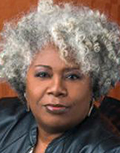 The Crossroads Project, co-directed by Anthea Butler, associate professor of religious studies and Africana studies, was awarded a $1 million grant from the Henry Luce Foundation. Dr. Butler directs the project with Judith Weisenfeld, the Agate Brown and George L. Collord Professor and chair of the department of religion at Princeton University, and Lerone A. Martin, an associate professor of religion and politics at Washington University in St. Louis.
The Crossroads Project, co-directed by Anthea Butler, associate professor of religious studies and Africana studies, was awarded a $1 million grant from the Henry Luce Foundation. Dr. Butler directs the project with Judith Weisenfeld, the Agate Brown and George L. Collord Professor and chair of the department of religion at Princeton University, and Lerone A. Martin, an associate professor of religion and politics at Washington University in St. Louis.
The Crossroads Project: Black Religious Histories, Communities, and Cultures is a new initiative based in the Center for the Study of Religion at Princeton University. Drs. Butler, Weisenfeld, and Martin will lead the creation of a digital archive of materials related to Black religious life in the U.S., a first-of its kind resource for scholars, teachers, religious and civic leaders, community organizations, and artists.
“This funding comes at a crucial time,” Dr. Butler explains. “A lot of historical material is being lost, and it is essential that we preserve it and create ways for people to access it. And as we reckon with the history of racism in this country, it is important for people to understand how African American religious groups have fought for equality and acted as stabilizing forces.”
“Philadelphia is an important center of African American religion,” she adds. “There is a richness here, and all of these religious groups have a stake in the city’s history. I’m anxious to get historical resources online for people to see.”
In addition to the creation of a digital archive, the four-year, multi-institution project will include public events and support for early-career scholars.
“Anthea, along with her colleagues in the religious studies and Africana studies departments, has been doing important work on the religious lives of Black Americans and the diasporic community,” says Steven J. Fluharty, Dean of SAS and Thomas S. Gates, Jr. Professor of Psychology, Pharmacology, and Neuroscience. “The Luce Foundation grant recognizes her as a leader in the field and will help to advance understanding of influential yet understudied communities.”
Jonathan VanAntwerpen, program director at the Henry Luce Foundation. also notes the fit between the project’s goals and the foundation’s mission. “Working at the intersections of disciplines, geographies, and generations, this compelling initiative will support public scholarship and stimulate the crossing of boundaries separating multiple knowledge communities,” he said. “Seeking to illuminate the diversity and complexity of African American religion, the project’s efforts will reach well beyond North America, examining the historical and contemporary impact of engagements in Africa and across the Americas, as well as the influence of immigration, on Black religious life in the United States. We are delighted to support this important new effort to advance scholarship and enrich public discourse.”
The Henry Luce Foundation seeks to enrich public discourse by promoting innovative scholarship, cultivating new leaders, and fostering international understanding. Established in 1936 by Henry R. Luce, the co-founder and editor-in-chief of Time, Inc., the Luce Foundation advances its mission through grantmaking and leadership programs in the fields of higher education, religion and theology, art, and public policy.
From the Deputy Provost, Chief Wellness Officer and VP for University Life: A Message to Graduate and Professional Students
February 2, 2021
We are writing, now that the Quiet Period has ended, to thank you for a safe and successful start of the semester and to reaffirm our shared commitments for the coming weeks and months.
The Student Campus Compact remains in effect, as does public health guidance from Penn Cares and the Philadelphia Department of Public Health, which requires masking, distancing, and handwashing. Students on and off campus must participate in screening testing and enroll in PennOpen Pass, our daily symptom management tool.
For the health and safety of our campus and West Philadelphia communities, you must continue to maintain your household and/or study pods. You may not visit friends in other residences, host parties, or attend large gatherings. All reports of such violations will be investigated by the Campus Compact Review Panel, with the potential for individual and group sanctions. The core concept of the post-Quiet Period phase is “more places, not more faces.”
Continued Vigilance: Virtual and Outdoors
All personal, social, student government, and club activity taking place virtually must remain virtual. Seeing friends outdoors in small, masked, physically distanced groups and eating takeaway meals may continue, and we are pleased to be opening more opportunities to get food across campus in a careful and safe way.
We are beginning a process for student groups to request opportunities to host in-person events and meetings, indoors or outdoors. Only vetted, approved events will be allowed to take place in designated meeting rooms. The bar for approval will be set intentionally high, given the many steps necessary to ensure participants’ health and safety. To submit a request for an in-person activity (indoors or outdoors), please visit the Graduate Student Center website.
Phased Indoor Openings on Campus
Athletics & Recreation
- A pilot program to begin a gradual re-opening of the Pottruck Health & Fitness Center will allow small groups of students to use the facility on weekdays from 3 p.m. to 7 p.m., Saturdays from 9 a.m. to 1 p.m., and Sundays from noon to 4 p.m. Students will be allowed to reserve access for one hour on Floors 1 and 2. Eligibility in this pilot program will be determined in consultation with Campus Health, based on students’ demonstrated adherence to the Campus Compact. Eligible students will be invited to participate in the pilot via email. If successful, this pilot will lead to a phased reservation system for all students at Pottruck in the coming weeks.
- Outdoor recreation hours will resume at the Franklin Field track. You can make reservations at the Campus Recreation website.
- The Penn Park Farm will be open for recreational activities and scheduled, COVID-safe events. Students may also request time slots to host small, physically distanced gatherings.
- Sansom Place East (SPE) will hold several virtual events. SPE residents who are interested in attending a program should contact their GA for more information.
Graduate Study Space
- The Office of the Deputy Provost and the Graduate Student Center will be providing temporary study/relaxation space for graduate and professional students in the Ben Franklin Room on the 2nd floor of Houston Hall. This space will be available for graduate and professional students Monday-Friday, from 9 a.m. to 4 p.m., by reservation (1-5 days in advance) at the Graduate Student Center website.
Penn Libraries
- Van Pelt-Dietrich Library Center has opened limited seating for individual study Monday-Thursday, 11 a.m. to 7 p.m. and Fridays noon to 5 p.m. All undergraduate, graduate, and professional students are eligible to reserve seats (at least 12 hours in advance). You must comply with Penn’s COVID-19 testing protocols, showing your reservation and PennOpen Green Pass for entry. Learn more and make reservations at the Penn Libraries website.
Penn Dining
- Only students with a Green PennOpen Pass will be allowed to enter Dining facilities. Students with a Red PennOpen Pass can follow instructions on the Penn Dining site.
- Sharing food remains a high-risk activity, necessitating a slow transition. Penn Dining has begun piloting 25% seating capacity at Starbucks in 1920 Commons, with reservations in the Penn Eats app.
- Additional indoor dining options will be determined and communicated in the coming weeks.
Perelman Quadrangle will support essential functions:
- Campus testing sites in Houston Hall and Irvine Auditorium
- Grab-and-go service in Houston Market and retail operations at Insomnia Cookies and University Copy Center
- Penn Commons outdoor seating
- Limited indoor meetings and activities (scheduled by administrative units and/or student groups), where approved through the review process described above.
Rest & Recharge
As a reminder, PhD and research master’s degree students will have three days off from classes and assignments in the coming weeks:
- Friday, February 12
- Tuesday, March 30
- Monday, April 12
Professional students should check with your programs regarding plans for these days. If the days are available to you, we urge you to use them to rest and recharge—relax, unplug, and take part in the virtual events of these three Engagement Days.
Your decisions impact the lives and health of your classmates and our West Philadelphia neighbors. You are implored not to travel, and Penn will not provide COVID-19 testing documentation for travel this semester.
Thank you for your continued dedication to adhering to the public health guidance of the Pennsylvania Department of Health, the Philadelphia Department of Public Health, and the University. We are enormously grateful for your resilience and your commitment to keeping our community safe.
—Beth A. Winkelstein, Deputy Provost
—Benoit Dubé, Associate Provost and Chief Wellness Officer
—Mamta Motwani Accapadi, Vice Provost for University Life

The Trustees’ Council of Penn Women (TCPW) is accepting applications for its Annual Grants Program and encourages members of the University community to apply.
Grants ranging from $1,000 to $3,000 will be available to individuals or organizations which promote:
- women’s issues
- the quality of undergraduate and graduate life for women
- the advancement of women
- the physical, emotional and psychological well-being of women
Favorable consideration will be given to projects that:
- affect a broad segment of the University population
- foster a greater awareness of women’s issues
- provide seed money for pilot programs that have the potential to become ongoing self supporting programs
To apply, visit the TCPW website at TCPW Grant. Applications must be submitted no later than February 19, 2021. Awards will be announced in the spring of 2021 and funds will be distributed in July/August 2021 for projects in the 2021-2022 academic year. For more information, contact Terri Welsh at welsh@upenn.edu.
Perelman School of Medicine’s McCabe Fund Awards for FY2022 Call for Applications: May 12
The McCabe Fund Advisory Committee is calling for applications from junior faculty in the Perelman School of Medicine (PSOM) and the School of Veterinary Medicine for the annual Thomas B. and Jeannette E. Laws McCabe Fund Fellow and Pilot awards. The McCabe awards were established in 1969 by a gift from Thomas B. and Jeannette E. Laws McCabe to the Perelman School of Medicine. The purpose of this gift is to support junior faculty who initiate fresh and innovative biomedical, clinical, and surgical research projects. Applications from clinical track physicians are encouraged and will receive special consideration. Faculty who have received either limited or no external research funding while in their first through third years on the faculty at the PSOM or the School of Veterinary Medicine at Penn are eligible. Junior faculty in these schools should contact their Department Chair for information and application forms. The guidelines and instructions to determine eligibility are also available on the PSOM website: https://www.med.upenn.edu/evdresearch/mccabe-fund.html
The deadline for submission is Wednesday, May 12, 2021. The McCabe Fund Advisory Committee will select the winners at its annual meeting in June.

 Penn Dental Medicine has received a major gift that will provide the resources to help build the School’s leadership role in global oral (public) health. A $5 million gift from Penn Dental Medicine alumnus Garry Rayant, D’77, and his wife, Kathy Fields, will create a new endowed professorship at the School and establish the Center for Integrative Global Oral Health.
Penn Dental Medicine has received a major gift that will provide the resources to help build the School’s leadership role in global oral (public) health. A $5 million gift from Penn Dental Medicine alumnus Garry Rayant, D’77, and his wife, Kathy Fields, will create a new endowed professorship at the School and establish the Center for Integrative Global Oral Health.
 A team of researchers led by Li-San Wang, professor of pathology and laboratory medicine in the Perelman School of Medicine at the University of Pennsylvania, has been awarded a two-year pilot grant expected to total $4.8 million from the National Institute on Aging (NIA), part of the National Institutes of Health, for studies of the genetics of Alzheimer’s disease in people of Asian heritage.
A team of researchers led by Li-San Wang, professor of pathology and laboratory medicine in the Perelman School of Medicine at the University of Pennsylvania, has been awarded a two-year pilot grant expected to total $4.8 million from the National Institute on Aging (NIA), part of the National Institutes of Health, for studies of the genetics of Alzheimer’s disease in people of Asian heritage. The Crossroads Project, co-directed by Anthea Butler, associate professor of religious studies and Africana studies, was awarded a $1 million grant from the Henry Luce Foundation. Dr. Butler directs the project with Judith Weisenfeld, the Agate Brown and George L. Collord Professor and chair of the department of religion at Princeton University, and Lerone A. Martin, an associate professor of religion and politics at Washington University in St. Louis.
The Crossroads Project, co-directed by Anthea Butler, associate professor of religious studies and Africana studies, was awarded a $1 million grant from the Henry Luce Foundation. Dr. Butler directs the project with Judith Weisenfeld, the Agate Brown and George L. Collord Professor and chair of the department of religion at Princeton University, and Lerone A. Martin, an associate professor of religion and politics at Washington University in St. Louis.
 Waheed Hussain, a former lecturer and assistant professor at the Wharton School and most recently associate professor of philosophy at the University of Toronto, died on January 31 from causes related to cancer. He was 48.
Waheed Hussain, a former lecturer and assistant professor at the Wharton School and most recently associate professor of philosophy at the University of Toronto, died on January 31 from causes related to cancer. He was 48.
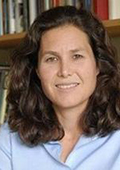 Two Penn faculty members, Scott D. Halpern of the Perelman School of Medicine and Jennifer Prah Ruger of the School of Social Policy & Practice, have been named Hastings Center Fellows for deepening public understanding of complex ethical issues in health, health care, science, and technology.
Two Penn faculty members, Scott D. Halpern of the Perelman School of Medicine and Jennifer Prah Ruger of the School of Social Policy & Practice, have been named Hastings Center Fellows for deepening public understanding of complex ethical issues in health, health care, science, and technology.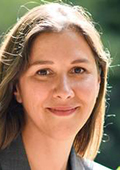 University of Pennsylvania Carey Law School professor of law Elizabeth Pollman was recently appointed by the European Corporate Governance Institute (ECGI) as one of its 50 new research members.
University of Pennsylvania Carey Law School professor of law Elizabeth Pollman was recently appointed by the European Corporate Governance Institute (ECGI) as one of its 50 new research members.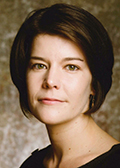 Nicole Rust, associate professor of psychology in the School of Arts and Sciences, will receive a 2021 Troland Research Award from the National Academy of Sciences (NAS) at the 158th Annual NAS Meeting.
Nicole Rust, associate professor of psychology in the School of Arts and Sciences, will receive a 2021 Troland Research Award from the National Academy of Sciences (NAS) at the 158th Annual NAS Meeting. Chenbo Zeng, a research assistant professor of radiology in the Perelman School of Medicine at the University of Pennsylvania, received an award from The National Comprehensive Cancer Network Oncology Research Program to further study abemaciclib, a drug used to treat hormone receptor-positive (HR+), human epidermal growth factor receptor 2-negative (HER2-) breast cancer. Dr. Zeng’s project will use PET imaging of cell cycle arrest to predict responses to abemaciclib alone or in combination with endocrine therapy. Research funding is being provided by a grant from American pharmaceutical company Eli Lilly and Company.
Chenbo Zeng, a research assistant professor of radiology in the Perelman School of Medicine at the University of Pennsylvania, received an award from The National Comprehensive Cancer Network Oncology Research Program to further study abemaciclib, a drug used to treat hormone receptor-positive (HR+), human epidermal growth factor receptor 2-negative (HER2-) breast cancer. Dr. Zeng’s project will use PET imaging of cell cycle arrest to predict responses to abemaciclib alone or in combination with endocrine therapy. Research funding is being provided by a grant from American pharmaceutical company Eli Lilly and Company.